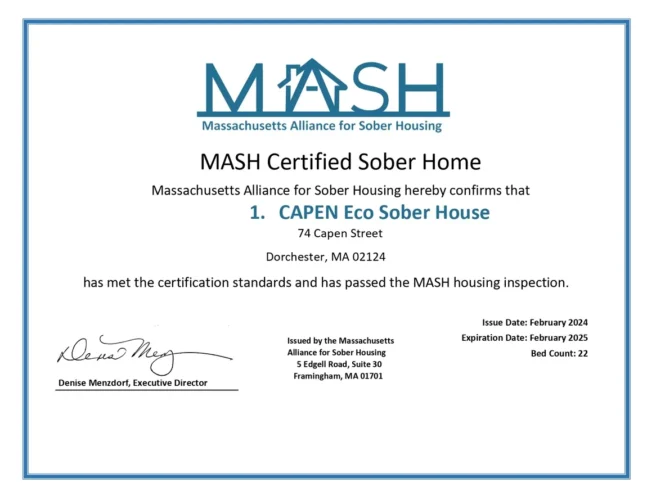Why Does Alcohol Dehydrate You? Tips to Minimize Dehydration and How to Rehydrate Quickly

Many carbs in alcohol turn to sugar that will spike your blood sugar levels. When you wake up, this can lead to some negative effects of dehydration. Indulging in alcohol doesn’t mean you’re fated to alcohol dehydration symptoms the next morning such as dry mouth, throbbing headache, fatigue, brain fog, and nausea. Liquor and wine also have a higher amount of alcohol by volume (ABV) than beer, contributing to a potentially greater risk of dehydration from these beverages. Drug rehabilitation With interrupted production of vasopressin due to the consumption of alcohol, you start to lose more water through urination, which can cause those symptoms of dehydration.
Health Goal

Drinks with higher alcohol content, such as spirits (whiskey, vodka, rum, gin), are more dehydrating compared to drinks with lower alcohol content, like beer and wine. Dark liquors, which contain congeners (byproducts of fermentation and aging), may cause more severe dehydration and hangover symptoms than clear liquors (Hydrant) (BodyBio). Alcohol’s diuretic effect stems from its ability to inhibit the secretion of vasopressin, also known as antidiuretic hormone (ADH). This hormone helps the kidneys manage the amount of water in the does red wine dehydrate you body.
The Shocking Ways Alcohol Damages & Reshapes Your Brain
When you consume alcoholic beverages, several factors contribute to this dehydration effect. First, alcohol is a diuretic, meaning it https://ecosoberhouse.com/ increases urine production. This can lead to a higher frequency of urination and the loss of fluids from the body.
- That’s why it’s so important to drink responsibly and have a hydration game plan in place (more on that later) for nights when you indulge.
- These are substances that promote urine production, or diuresis.
- Dehydration can reduce muscle endurance and performance, making it more challenging to sustain physical activity for an extended period.
- Alcohol is a diuretic, which means it moves fluid out of your body and can easily dehydrate you.
A Change in Body Temperature
When ADH levels are suppressed, the kidneys excrete more water, leading to increased urine production and subsequent dehydration (DripDrop). Alcohol dehydration is also known to exacerbate common hangover symptoms, including headaches, sickness and general discomfort. This is why it’s essential to drink water, consume electrolyte-rich foods and beverages, and get some rest if you believe you are suffering from alcohol dehydration and a hangover. Although alcohol has no health benefits, many people enjoy drinking beer, wine, or other alcoholic beverages, and there are several ways you can minimize or avoid alcohol dehydration.

It can also weaken immunity, increasing a person’s risk of infections. These are substances that promote urine production, or diuresis. Dehydration is when the body does not have sufficient amounts of fluid to function effectively.

- Interestingly, studies have shown that people over 50 overcome the suppression of ADH from alcohol more quickly than their younger counterparts.
- Vitamin B12 helps increase your energy level and will help your body to function and recover properly from a night on the town.
- When drinking alcohol, especially in hot weather, avoiding dehydration is very important.
- Beyond its direct influence on hydration levels, alcohol can also affect various body functions, further contributing to dehydration.
It does this by inhibiting your antidiuretic hormone — a hormone that’s used by the body to protect against dehydration. This hormone encourages your body to collect concentrated fluid in the kidneys and bladder, before peeing it out. Basically, when you spend a night drinking alcohol, you pee just one extra time compared to if you were spending the night drinking water. These results have been repeated dozens of times in different populations, looking at all different kinds of alcohols and moderate vs. heavy alcohol doses. So while more research is needed to know for certain, beer may not dehydrate you as much as other alcoholic beverages without as high of a water content.
If no amount of greasy food, the hair of the dog or other old hangover remedies are cutting it, it may be time to adjust your drinking habits and make some safer choices. There is a wide variety of advice when it comes to how much water we need to stay healthy and keep our bodies functioning properly. A meal or snack can help restore some of the nutrients lost from dehydration while soaking up any alcohol still in your digestive tract.
That said, the higher a drink’s alcohol content, the more of a diuretic it’s believed to be. As you drink alcohol, it accumulates in your body—especially if you drink large amounts at a fast pace. The higher your blood alcohol level is, the more you will notice its effects. Lower levels of hydration in the body decrease the volume of the cells, which may impact a person’s blood sugar. Energy drinks may contain a combination of dehydrating ingredients. They generally contain high levels of caffeine and sugar and may contain other added ingredients that stimulate the kidneys and act as a diuretic.

This increased urine output can result in higher fluid loss and subsequently increase the risk of dehydration. Additionally, alcohol can impair the body’s ability to conserve water, leading to further fluid imbalance. Occasional dehydration from alcohol might leave you feeling unwell for a short period of time, but excessive and prolonged dehydration from alcohol use does present a few more serious risks. This is because it can begin to affect organs and their function, skin health and overall well-being. For this reason, you must look out for the signs of alcohol dehydration and take a proactive approach to maintaining appropriate hydration levels before, during and after consuming alcohol. Alcohol dehydrates us through its diuretic effect and contributes to fluid loss through sweating or vomiting.